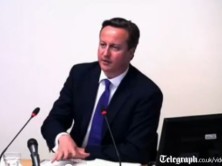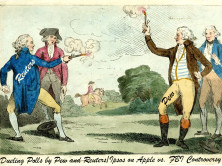
Last month a Wisconsin ABC affiliate, WKOW, sent letters to local doctors offering an advertising opportunity that seemed to imply that doctors would be featured in news reporting by the station in return for buying advertisements there.
Ryan J. Foley writes in an October 2nd Chicago Tribune article that the station:
Sent letters to doctors and clinic managers last month soliciting help to create ‘a local source for credible, consumer information on health specialties. The letter describing the ‘unique marketing initiative’ didn’t specify when the programming would run, which left some readers believing it would be on news shows.
‘We will create the highest possible visibility for each specialty and you will be positioned as the authority in your field,’ General Manager Tom Allen wrote in the letter.
In a climate where news organizations are shrinking and revenue sinking, the line between advertising and news has become more and more blurred. (iMediaEthics has written about ads trickling into news before.)
The Association of Health Care Journalists (AHCJ) published an alert last year, which Foley cites. AHCJ urged journalists to “avoid arrangements with hospitals that improperly influence health coverage, saying unethical partnerships interfere with independent news coverage of health care.”
“The ethics codes of the Association of Health Care Journalists and the Society of Professional Journalists call for fair and accurate reporting and editorial independence. But editorial cutbacks, along with pressure on hospitals to market profitable services, may be eroding these standards,” they write.
Foley reports that Allen has denied there was or would have been any link between the advertising and the news department at WKOW, saying “There is absolutely no suggestion of favorable news coverage by investing in this advertising opportunity,” in an e-mail to The Associated Press.
The wording of Allen’s email pitch, however, seems to dispute his defense that “There is absolutely no suggestion of favorable news coverage.” Foley quotes Al Tompkins at The Poynter Institute, who says:
The wording of Allen’s letter suggested news would be involved. He said the station was allowing doctors to be “the authority” regardless of their background, as long as they pay.
Stations need the income to keep doing good things and cover news,” he said. “But anything that reinforces an existing perception that content is for sale undercuts everything a serious newsroom works toward.”
Read Foley’s full Tribune article here.






